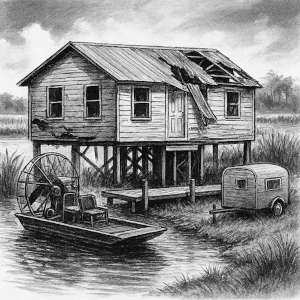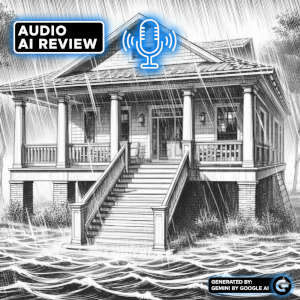AI Resources
Month 2 - Forced Mortgage Payoff Appeals, Disputes, and Reporting Mismanagement
Homeowners facing a Duplication of Benefits (DOB) penalty due to a Forced Mortgage Payoff (FMP) must actively advocate by citing federal HUD guidance and, when necessary, escalate mismanagement at the state level. The core dispute lies in the conflict between clear HUD policy and outdated state-level requirements imposed by some CDBG-DR programs.
By Murray Wennerlund, published , updated .
I. The Basis for Appeal: Proving Lack of Legal Control
The successful removal of the FMP amount from DOB calculations hinges on demonstrating that the homeowner lacked legal control over the insurance proceeds once the mortgage lender applied them to the outstanding debt.
A. HUD's Overriding Guidance
Homeowners must cite HUD's definitive policy, issued June 20, 2019 (Docket No. FR-6169-N-01):
- "Funds are not available to an applicant if the applicant does not have legal control of the funds when they are received."
- If the mortgage contract requires insurance proceeds to be applied to the unpaid principal, the lender—not the homeowner—has legal control.
- The homeowner is legally obligated to use the funds for debt reduction and cannot redirect them for repairs, meaning the proceeds do not reduce CDBG-DR eligibility.
B. Challenging Outdated State Policy
Many state programs still rely on a 2011 FEMA policy requiring a lender-issued letter stating the payoff was "required and not optional" or explicitly labeled a "Forced Mortgage Payoff."
- Major lenders (e.g., US Bank, Wells Fargo, Chase, Quicken Loans) routinely refuse to issue such letters.
- Homeowners must assert that this requirement is outdated and inconsistent with HUD's 2019 guidance, which focuses solely on lack of legal control, not specific language from the lender.
II. Filing an Appeal or Dispute (Part 1: Advocacy)
To challenge a DOB classification and seek reimbursement, homeowners should follow these steps:
-
Request an Exceptions Panel Review
Formally request a review from the state's disaster recovery unit under its Exceptions Panel process. -
Submit a Formal Appeal or Email
Send a detailed appeal to state CDBG-DR managers, the Department of Administration (DOA), and legal counsel. -
Include the Following in the Appeal:
- Identify the lender and describe the action: NFIP funds were applied to the mortgage balance.
- State that the lender refused to provide a letter confirming a "Forced Mortgage Payoff."
- Quote HUD guidance (FR-6169-N-01 or FR-6169-N-02) confirming that lack of legal control excludes funds from DOB.
- Explain that control was lost when the two-party check, signed by the homeowner, was submitted to the lender—who then applied the full amount to the mortgage without offering escrow or joint reconstruction options.
- Clarify that this decision was based on the home being substantially damaged or condemned, triggering lender policies such as "At Risk of Ownership Change."
- Offer to provide an affidavit attesting to the loss of control over the insurance proceeds.
III. Reporting Mismanagement to HUD OIG (Part 2: Escalation)
If the state agency fails to respond, continues to demand the unobtainable letter, or delays action, escalate the issue to the federal level.
-
File a Complaint with HUD OIG
Submit a formal report to the HUD Office of Inspector General. -
Focus the Complaint on Mismanagement
Emphasize "serious mismanagement with high-dollar losses or significant community impact." -
Frame the Mismanagement Argument:
- The state is improperly applying FEMA policy within a HUD program, ignoring HUD's 2019 guidance.
- This misalignment causes financial harm to disaster survivors and may contribute to housing instability or homelessness, violating HUD's national objectives.
-
Include Specific Reporting Details:
- Explain how the state's demand for a "Forced Mortgage Payoff" letter contradicts HUD's standard of proof of involuntary action/lack of control.
- Note that major banks do not produce such letters, making the requirement unreasonable.
- Name relevant state officials (e.g., program director, legal adviser) who are aware of HUD's policy but fail to implement it.
IV. Collective Action (Part 3: Organizing for Impact)
To strengthen the appeal and increase visibility:
-
Team Up with Other Homeowners
Seek others affected by FMP-related DOB penalties—especially those whose NFIP funds were applied to mortgage balances. -
Present a Unified Voice
A single spokesperson representing multiple households can more effectively advocate for policy correction and fair treatment. Collective appeals are harder to dismiss and more likely to prompt legal review and administrative reform.

